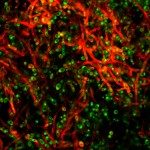Lien vers Pubmed [PMID] – 34569668
Lien DOI – 10.1111/mmi.14818
Mol Microbiol 2021 Sep; ():
Candida albicans is an opportunistic fungal pathogen that is responsible for infections linked to high mortality. Loss-of-function approaches, taking advantage of gene knockouts or inducible down-regulation, have been successfully used in this species in order to understand gene function. However, overexpression of a gene provides an alternative, powerful tool to elucidate gene function and identify novel phenotypes. Notably, overexpression can identify pathway components that might remain undetected using loss-of-function approaches. Several repressible or inducible promoters have been developed which allow to shut off or turn on the expression of a gene in C. albicans upon growth in the presence of a repressor or inducer. In this review, we summarize recent overexpression approaches used to study different aspects of C. albicans biology, including morphogenesis, biofilm formation, drug tolerance, and commensalism.

